
IN PHOTOS: Community members reflect on Mardi Gras’ “Momentum” theme

THE PHOTOSHOOT EXPLAINED
I once again I have the gift of capturing the Sydney Gay and Lesbian Mardi Gras in images, a privilege I have held as both the official Mardi Gras photographer and for the Star Observer. Both organisations have helped pave the way for our community.
Year after year they have provided the platform and mechanisms for our causes to be heard and built upon. Over time they have both kept the momentum going that many others have built, by getting louder, larger and stronger. It is said it takes a village to raise a child, likewise it takes a community to keeping striving towards equality.
For this yearÔÇÖs Mardi Gras theme, Momentum, I wanted to show the struggles we have travelled through over time. From the early days of CAMP, through to the first Mardi Gras, from the HIV and AIDS crisis to the decriminalisation of homosexuality.
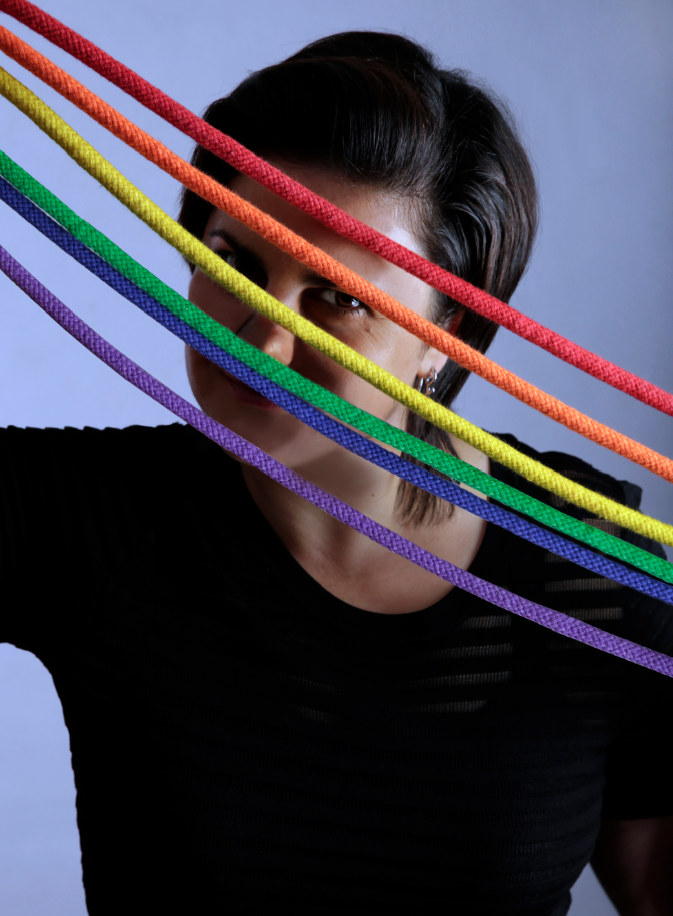
We have built on the actions of others before us, we havenÔÇÖt won our fight for marriage equality yet and we need to be mindful that our trans and gender diverse communities have their own unique battles to also win.
You will see in my photos for FG magazine the six key timeline events I mentioned above but also a theme of rope ÔÇö something that starts as a single strand that joins with others and becomes stronger and stronger when combined together as rope.
As we build momentum over time, these ropes join together, each taking on the struggle of the previous overturned battles to keep reaching for complete equality in our future. On a personal note, I am forever grateful to the strength of our community elders, my mentors, my heroes, you who fought before me and beside me, to allow us the freedom of today to fight for tomorrow.
Thank you to my fabulous team at the Star Observer, my fabulous friends, and gorgeous girlfriend. You are my family.
Happy Mardi Gras!
Ann-Marie Calilhanna
Star Observer photographer
__________________________________
C.A.M.P
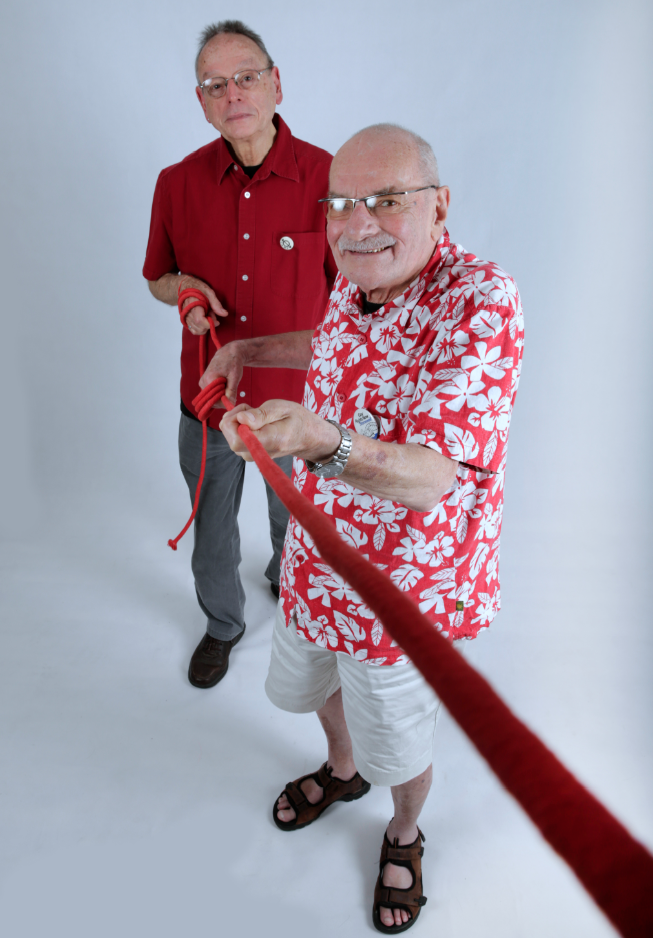
ÔÇ£We could never have imagined, believed, nor foreseen in 1970 how far CAMP would go following the publication of an article about John Ware and Christobel Poll in The Australian, written by Janet Hawley. The article announced the formation, by John and Christobel and their same-sex partners, of the modern Australian homosexual movement CAMP ÔÇô the Campaign Against Moral Persection. We immediately became foundation members.
The communityÔÇÖs expansion, progress, pride, and diversity is truly magnificent and a triumph for those who started it from such a small and dedicated, tirelessly working group of people 46 years ago.
The editorial of the November 1970 edition of CAMP INK, CAMPÔÇÖs monthly publication, states: ÔÇ£The overall aim of CAMP is to bring about a situation where homosexuals can enjoy good jobs and security in those jobs, equal treatment under the law, and the right to serve our country without fear of exposure and contempt.ÔÇØ
As we reflect, as community elders, and also as a couple (together 50 years this year), we know that CAMPÔÇÖs 1970 aims have not all been achieved for our community. But we have come a very long way. However, thoughts, action and support is needed for our sisters and brothers in many countries, whose situation is worse now than our starting point was all those years ago.
Nonetheless, we are very proud to have seen beginning of CAMP and the subsequent major positive changes it influenced.ÔÇØ
– Peter Bonsall-Boone and Peter de Waal
__________________________________
The 78ers
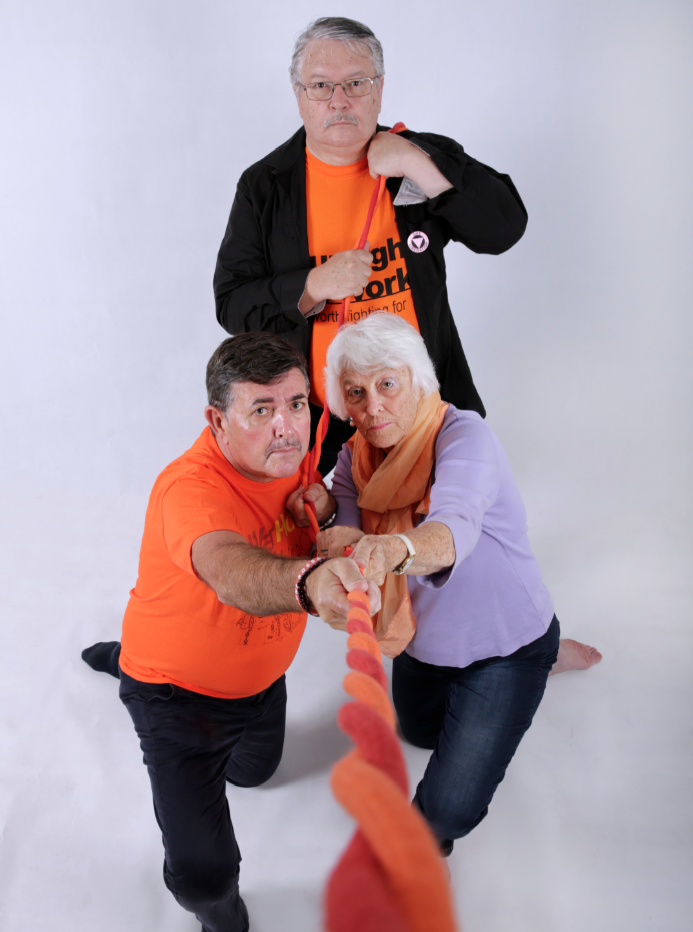
ÔÇ£I came out as a feminist and lesbian in 1976, and immediately became an enthusiastic activist. So a Mardi Gras party and demo one evening in June 1978 was just another average event. Later that night while fighting back I became a 78er, violently arrested with others by brutal police.
All these years later, I am still a staunch Mardi Gras supporter, grateful to the dedicated committees, boards, and workers who have kept it going for so many years in spite of the hard work, stress, and politics they have to negotiate.
Mardi Gras demonstrates our success, and the vast array of resources we have created that keep us visible and accessible, especially important to coming out LGBTI folk both young and old who are looking for their people. We still have more to achieve with marriage equality and trans rights and acceptance, but we have come a long way and we are very privileged.
IÔÇÖd like to see us use our privilege and resources to give hope and help to queer folk in developing countries who can be in danger of torture, jail or the death penalty. LetÔÇÖs think about what we can do.
I am constantly in awe of the power of activism, and the huge changes we have achieved in both societal attitudes and legislation since the early days of Gay and WomenÔÇÖs Lib. Still a way to go but there is no going back. We are unstoppable.ÔÇØ
– Gail Hewison
__________________________________
HIV Activism
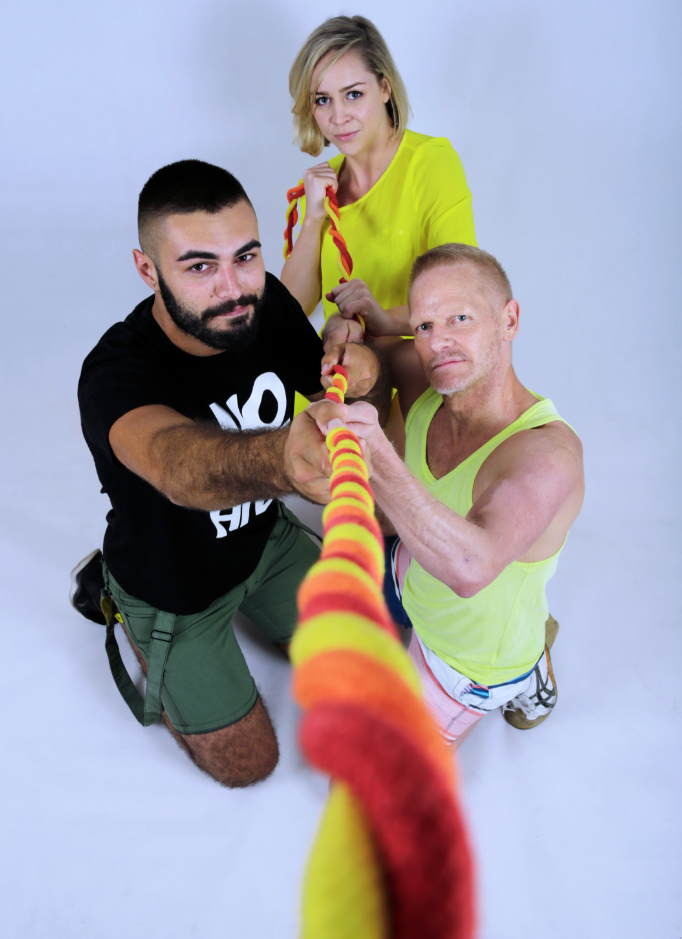
ÔÇ£I started working as a nurse in HIV in the late 80s at St VincentÔÇÖs Hospital Sydney. In some ways it was very much like working in a war zone and in a small way, I felt honoured to help and comfort so many people with AIDS-related illnesses on their journey to other side, especially at a time where there was widespread community fear, stigma and discrimination.
I also lost many friends, including my first partner and love of my life Michael. IÔÇÖm very proud to be a gay man living with HIV today and continue this work at a time where there is hope around ending HIV. There is also much more work to be done in many African and Asia Pacific countries, which are enduring a greater burden of HIV. I believe there are many life lessons that can be learned from those who died from AIDS-related illnesses, but in essence cherish those that you love, challenge stigma and discrimination, and think about the legacy you want to leave behind. But above all, remember to let the memories of those we have all lost and loved live again.ÔÇØ
– David Murray
ÔÇ£Growing up, I didnÔÇÖt have many high hopes given the stigma that surrounded being gay or ÔÇÿabnormalÔÇÖ. As someone who identified as a homosexual and living in ethnic Sydney, I never thought IÔÇÖd be talking about my HIV, crystal meth past and sexual abuse as a kid on national TV. I know now that itÔÇÖs not about fitting in, itÔÇÖs about allowing everyone to be a part of the party that is the world out there. Standing up for whatÔÇÖs right on social media and in person whether in front of strangers or my family, I think itÔÇÖs important we do more to build inclusivity in our community.
IÔÇÖm using the momentum of my successes and failures of my past to pursue working in the HIV and AIDS sector to help people have a voice and challenge stigma, no matter how insignificant it may seem. It always makes a difference. Make a stand here with me.ÔÇØ
– Theodore Tsipiras
ÔÇ£Being diagnosed with HIV as a 23-year-old in February 2012 was a complete shock. I didnÔÇÖt really have any concept of what HIV was or what it meant to live with HIV and I felt like my life was over. Now, four years later, my life has changed for the better as a result of my diagnosis. As a woman, and a young woman living with HIV, I am a minority within a minority and it is easy to feel isolated. However, I have embraced the support that is available to me and embraced the community which I am proud to belong to.
We are seeing lots of exciting developments when it comes to HIV moving forward and I am very optimistic about what the future looks like with the momentum we currently have. It is important that people are not afraid of knowing their status, and that they are not afraid of regular testing. And if the test happens to come back positive, donÔÇÖt be afraid, we are so lucky now that with early detection and treatment people can live well with HIV and IÔÇÖm happy to be an example of that.ÔÇØ
– Abby Landy
__________________________________
Decriminalisation
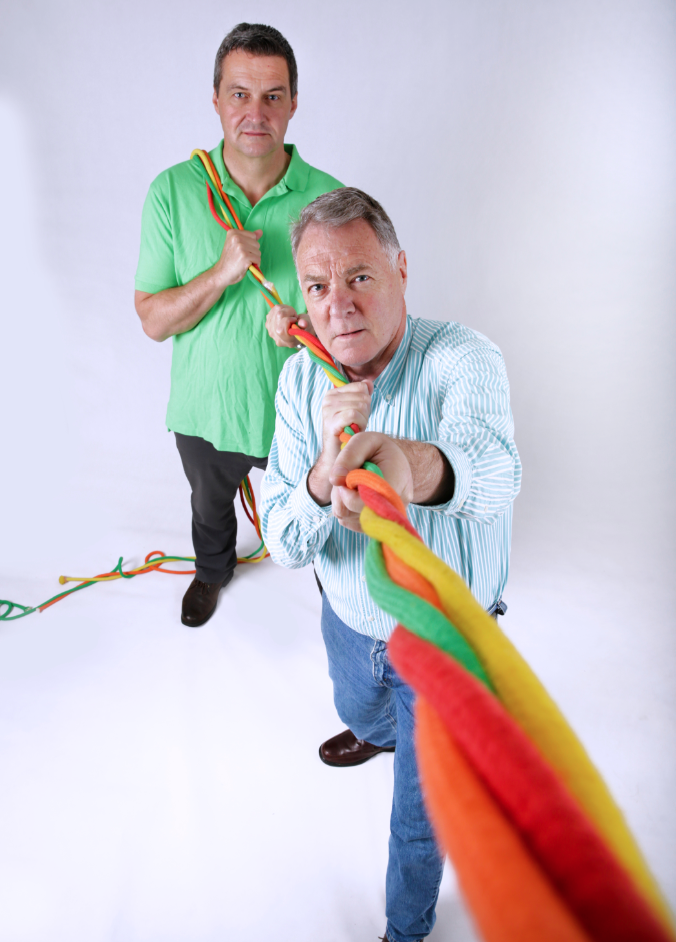
The decriminalisation of homosexuality was a law reform that was never easy to achieve. Usually it depended upon the election of a state or territory government willing to enact legislation, and then often at the behest of reforming Attorneys-General such as Hayden Storey in Victoria and Dean Wells in Queensland. In two states it proved to be particularly difficult, but the momentum was worth it in the end: NSW, despite there being a reforming Labor government, and Tasmania, the last state to decriminalise in 1997.
NSW
“From his election in 1976, NSW Premier Wran had refused to act on reform, telling a CAMP delegation that it was up to the gay community to convince MPs and the wider community. And that is just what we did. From the formation of Gay Rights Lobby in 1980, the community embarked on an intense four-year campaign that saw lobbying, demonstrations, petitions, the distribution of booklets to parliamentarians, the opening of a ÔÇ£Gay EmbassyÔÇØ outside the PremierÔÇÖs home, the mass signing of Statutory Declarations declaring criminality and seeking arrest by the Vice-Squad, and more. There were three separate private members bills that all failed to pass state parliament. However, when NSW Police raided Club 80 in 1983, they overplayed their hand and helped swing public sentiment in favour of reform. Finally in 1984, Wran, who could never get agreement for a bill through his Labor caucus, introduced his own private members bill, seconded by Liberal leader Nick Greiner, which forced parliamentary reform, though initially with an unequal age of consent.
Ironically, two years before decriminalisation, Wran had successfully backed anti-discrimination protections for homosexuals being enacted despite the illegality of sexual acts, the first such legislation in Australia.”
– Robert French
TASMANIA
“The small Tasmanian Gay Law Reform Group that formed in March 1988 knew it had an uphill battle ÔÇö our laws against gay sex were the harshest in the western world, the then-Premier had said homosexuals were not welcome, and the only publicly out gay person in the entire island was Greens Senator Bob Brown.
When we set up a stall at Salamanca Market to gather petition signatures, we were banned. Angry rallies against decriminalisation denounced us as a threat to Tasmania. Parliament angrily rejected gay law reform legislation with calls for the reintroduction of the death penalty for homosexuality.
We rose to the challenge. We won back our stall after 130 people were arrested defending it in what remains AustraliaÔÇÖs largest act of gay rights civil disobedience. We bussed in supporters to protest outside the rallies, diffusing their anger with our peaceful vigils. We stepped around parliament by taking our case to the UN Human Rights Committee, the Federal Parliament and the High Court, winning the support of each. Most importantly, we took our case to the people, telling our personal stories to hundreds of community groups across the state.
This campaign not only finally achieved gay law reform in May 1997, it transformed the hearts and minds of everyday Tasmanians. When decriminalisation occurred it was as if a dam was breached. Out flowed the best anti-discrimination and relationship laws in Australia along with the best school anti-homophobia policies and government/LGBTI community liaison. Most of all, a new identity was forged ÔÇö one that had seemed almost impossible in 1988 ÔÇö the proud gay Tasmanian.”
– Rodney Croome
__________________________________
Marriage Equality
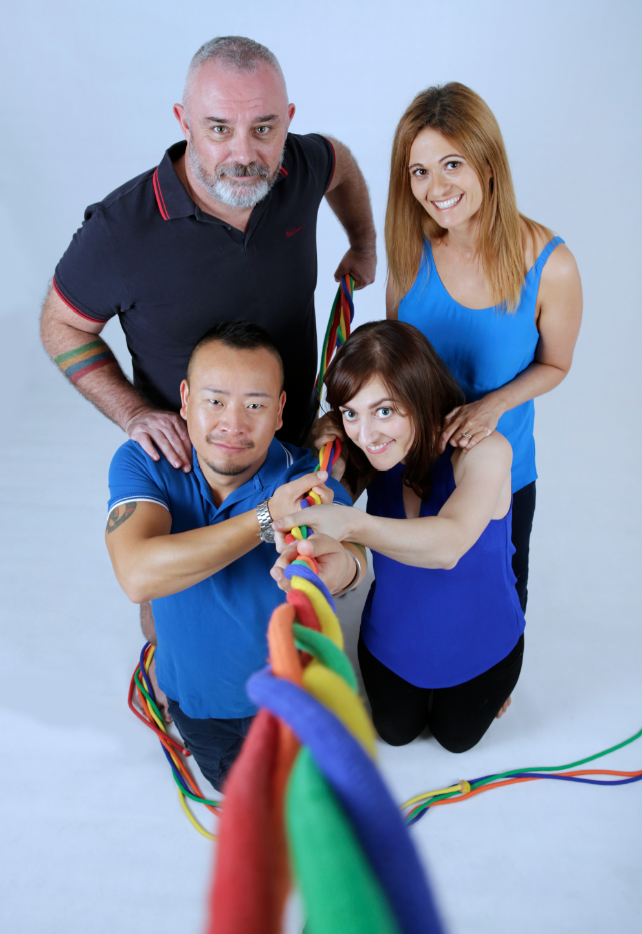
ÔÇ£For us the right to marry the person I love, regardless of gender, should be a given. Why should we as citizens be denied the same right as any other citizen in our country. ItÔÇÖs as simple as that, and there is no argument that any sane person can come up with that can refute that.
We look forward to the day, when in front of our family and friends, we can marry and show that our love is no different than anyone elseÔÇÖs, that our desire to spend the rest of our lives together, grow old together is just as valid and just as special as any other couple regardless of gender. We love each other and long for this day.ÔÇØ
– John Nash and Bk Ku
ÔÇ£Our wedding day in Sydney in September 2014 was an amazing experience, packed full of love, laughter and happiness. But there were also moments when we could not escape a sense of sadness. While our marriage was recognised by the British government, it is still not recognised in Australia. We are also mindful that a lack of marriage equality in Australia means that many loving couples are denied a chance to celebrate their relationships with family and friends.
We believe that marriage should be an option available to all loving couples. Opening up the institution of marriage will send an important message to young LGBTI people growing up that their love is equal and that they are accepted and valued in this society.
Marriage equality is worth fighting for. We watch with excitement as country after country ushers in this important change. We know with continued hard work and energy, Australia will get there and when we do, it is going to be a wonderful moment in our history.ÔÇØ
– Sarah Midgley and Shirleene Robinson
__________________________________
Gender Diverse
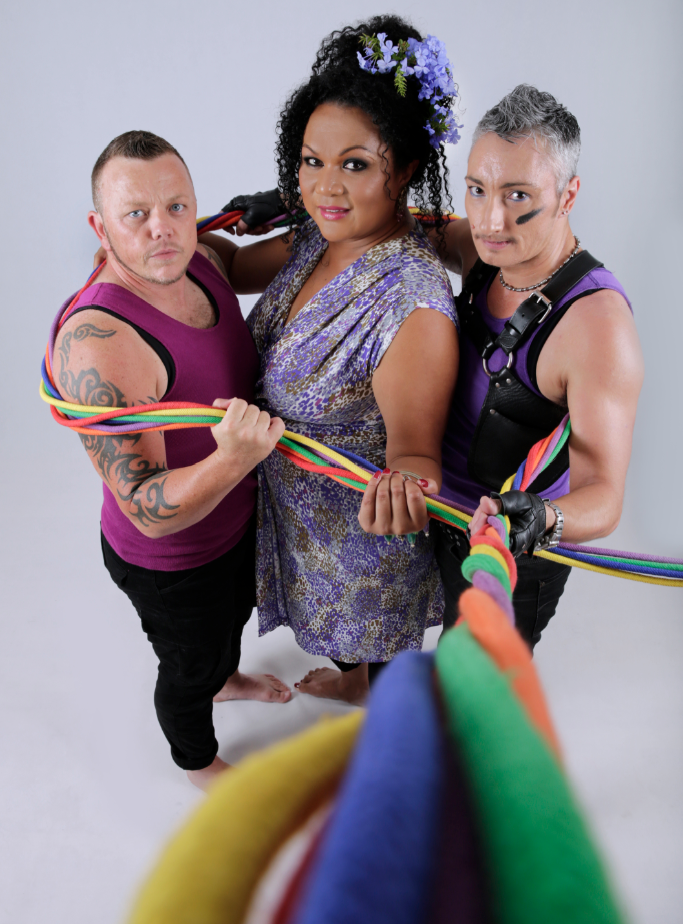
ÔÇ£I forever found myself daydreaming of being a boy, that one day I could look on the outside, the way I felt on the inside. As far back as I can remember I have always stubbornly challenged what the world saw me as, standing up and over the toilet as my brothers would do, skilfully peeing as though I had a penis, tucked up there hiding waiting for the right time it would just drop out so I could say ‘see look, here it is’ ÔÇö the one thing which will allow me the right to be accepted as a boy. But it never dropped. So I had to accept who I was, though I never really did, which eventually caused me a lot of grief, confusion and hurt.
However, two years ago I began transitioning and I am half way through. IÔÇÖm getting stronger and focusing more on the emotional changes testosterone is delivering. WonÔÇÖt lie, itÔÇÖs not easy but I can see obvious changes both emotionally and physically and day by day my body is morphing into the dude I knew was always in there. ItÔÇÖs a challenge but this is my life, itÔÇÖs my story. You only get the one go in life. For me IÔÇÖm gradually realising the world isnÔÇÖt such an angry and confusing place to be in anymore. And this makes me happy.ÔÇØ
– Jo
ÔÇ£I made my transition 26 years ago. Intolerance and discrimination was very common and widely perceived as acceptable behaviour within and outside of our community. I feel blessed to witness our protection under the anti-discrimination laws and a shift in a willingness to understand and accept trans people not only in the media but in the broader community, it was not something I expected to see in my lifetime.
I am very happy for the younger trans people of our community that they will never have to experience the greater hardships that I and my peers faced when we first transitioned. There is an exciting new world awaiting them with infinite possibilities, which gives me pride.”
– Katherine
RELATED:
The Star Observer is a proud media partner of the Sydney Gay and Lesbian Mardi Gras.
For all of Star ObserverÔÇÖs Mardi Gras coverage,
__________________________________
**This was first published in the , the Sydney Gay and Lesbian Mardi Gras festival guide. Grab your free copy today.
©Ú▒▓╣╗Õ╠²fg┬áin digital format:
__________________________________









